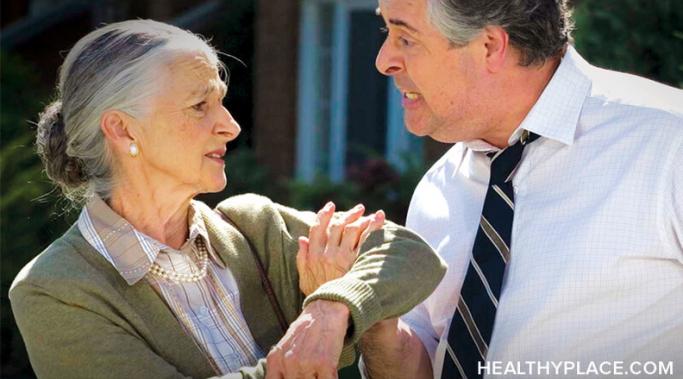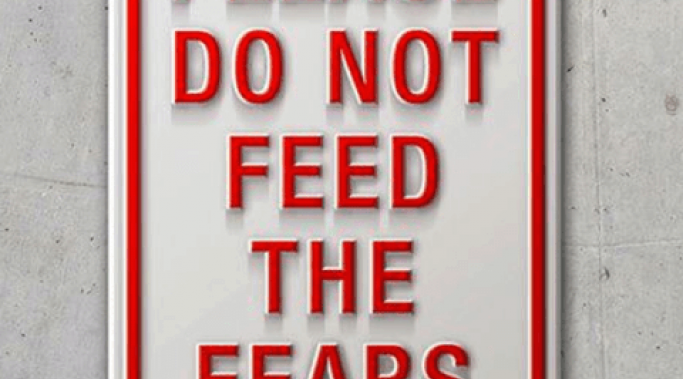Blogs
Intimate partner violence has been called the “hidden variable” in the lives of older adult women (65 and older). In our youth-driven culture, it can be difficult to think of older women as the victims of domestic violence, spousal abuse, rape, or emotional abuse, chiefly because it is uncomfortable for us to consider the elderly as romantically and sexually active. These are younger women’s problems, goes the popular attitude, and media and social services directed at victims of IPV seem to concur. If you’ve ever thought this way, you’re not alone. Studies have shown even physicians are reluctant to ask older women about domestic violence, particularly sexual abuse.
People associate so many experiences with food. I remember what I had at so-and-so's wedding and how happy my grandmother's strawberry shortcake makes me feel. There are so many good things about food. And, then, there's the way that ADHD medications make you feel about food. Those feelings? They tend to not be so good ...
If the signs and symptoms of depression were detected early in a young person’s life, would it make a difference? (Symptoms of depression in teens and children)
Teenage Depression or Normal Teenage Behavior?
I was a moody teen… is there any other kind of teen? The sudden outbursts, melancholy and disinterest in teenagers is often attributed to or described as bad-tempered, sulky, hormonal, bitchy, dramatic. The list is endless. Regardless of gender, each teenager must survive his/her own brand of pubescent purgatory.
As a self-harmer, you’re going to have scars. You’re going to have cuts or burns or scrapes or bruises that stick around for the rest of your life. Sometimes, these marks can be hidden and forgotten about. However, some marks are not that easy to push aside and can haunt you.
I wasn’t a self-harmer who needed to dig real deep when cutting. I was calm after some small marks and a little pain because, that in itself, redirected me. (read: Self-Injury Cutting: Cutting Yourself to Relieve Emotional Pain) However, I do have self-harm scars that have lingered over the years that I do not think are going to go away.
Some of you may be the self-injurers who have a hard time hiding your marks with some foundation and bracelets. Some of you may feel embarrassed to wear short sleeves or a bathing suit because it is visible that you’re painted in pain.
For recovered self-harmers and those still struggling, we are “living with ladders.”
Everyday is a struggle – all those dealing with anxiety's racing thoughts and self-harm understand that. But anxiety is an issue that every human being puts up with, whether or not they want to admit it. For those who cut, pull hair, burn or head-bang, anxiety is usually what controls the self-harming behaviors (When Anxiety Leads to Self-Injury).
The title of this blog implies that I will be focusing on people in our lives who--for the most part--do not live with a mental illness. These people like to give us advice on what medications we need to take or tell us we don't need to take medication at all. It's confusing and, frankly, a real piss off.
Decision making
Making decisions is always on the mind of a parent with a child who has mental illness. What school will they go to? Will it meet their needs? What medications can we try? Which ones will work? Which ones don't? What does the therapist, teacher, psychiatrist, pediatrician say? Everyday, we as parents (in general) make decisions in the best interest of our children. But, when does that transition from us to our children? When do they start making decisions about their own lives?
Therapist and blogger Emily Roberts explains mistakes people make when trying to be confident and simple solutions to fix them.
Bipolar places limitations on our lives. It might be the fact that we can’t go out and enjoy a cocktail after work or it might be the fact that we can’t stay out all night. Or it might be the fact that we can’t work full time or that we have to live with medication side effects that make us sick. Limitations are there, no matter how you look at it.
But what happens when you don’t respect those limits? What happens when you choose to ignore them?
I can tell you. You feel like a dog’s breakfast. Just ask me. I did it on Monday.
Kids and Their Psychiatric "Disorders"
This morning, I read a disturbing headline: 1 in 5 Kids May Have Psych Disorder.
Say what? It makes me wonder: What are we doing to our children?
As someone who has been in the field for 20 years, I have seen diagnosing children with a psych disorder do more harm than good. Children fulfill the prophesies of these mental health diagnostic labels and it is very hard to recover from these identities supported by years of mental health practitioners, with albiet good intentions, telling them what is wrong with them and that they have to "cope" with it.








